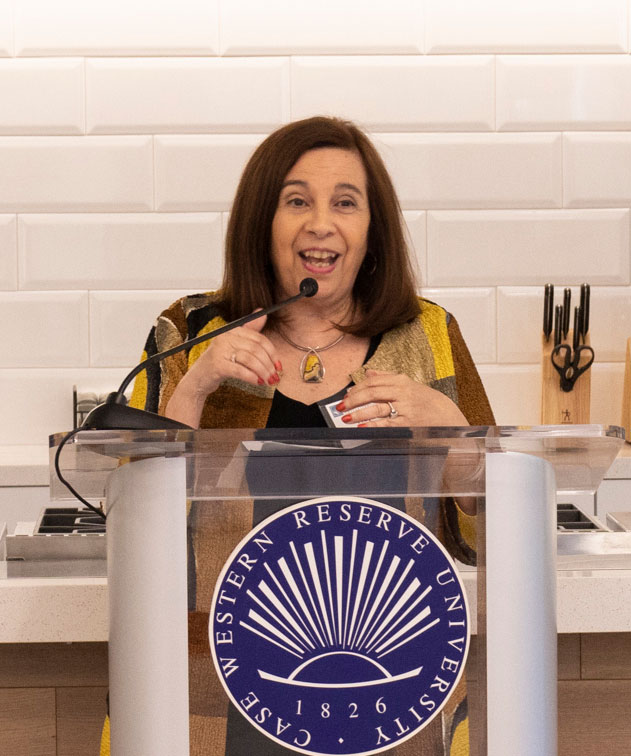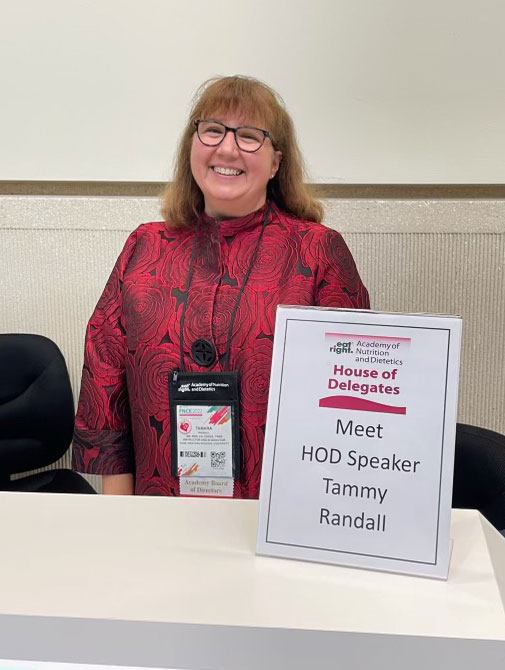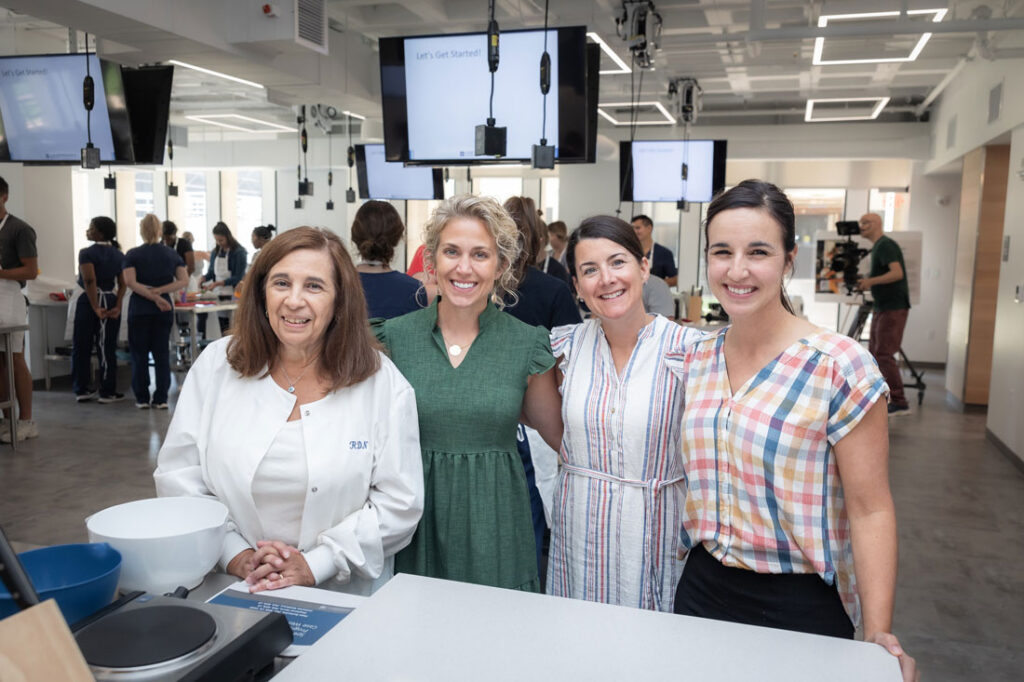In recognition of Registered Dietitian Nutritionist Day, March 13, and National Nutrition Month, The Daily is highlighting the important role these professionals play as key members of interdisciplinary healthcare teams.

Registered dietitian nutritionists are often viewed as the “food police.” But that’s a common misconception about the field.
“We help make lives better,” said Hope Barkoukis (GRS ‘75, nutrition; GRS ‘97, nutrition), chair of Case Western Reserve University School of Medicine’s Department of Nutrition, who left a successful career in the corporate world more than two decades ago to teach at the university. “The dietitian is a critical link in synergistic healthcare, alongside physicians, nurses, physician assistants and social workers.”
Dietitians are experts in the use of food and nutrition to promote health and manage disease. Preparing students to become registered dietitian nutritionists (RDN) is a specific path at Case Western Reserve. After RDN candidates complete coursework at the university, they must earn a spot in an accredited dietetic internship program and pass a national exam before earning the title.
Student-turned-instructor Tamara Randall (CWR ‘96; GRS ‘00, nutrition) found inspiration to pursue a career in the field of nutrition while taking an undergraduate elective course.

“I thought I wanted to go to dental school, but I really enjoyed Nutrition 201 and ended up changing my career path,” said Randall
After earning both her undergraduate and graduate degrees at Case Western Reserve, she worked in clinical and community settings on diabetes prevention and management.
“Much of my time was spent teaching patients how to control their blood glucose, which made me think I might enjoy teaching future dietitians,” said Randall.
Both Barkoukis and Randall said another misconception is that registered dietitian nutritionists only work in hospitals—however, RDNs work in many sectors, including public health, community, corporate, academic, culinary and research settings.
Barkoukis stressed that lifelong learning is necessary in the dynamic field of nutrition.
“Research is absolutely critical because we have to have evidence-based information to move us forward,” said Barkoukis.

Randall said every faculty member in the Department of Nutrition pays close attention to developments in their specialty areas, and as new data emerges, they add it to existing courses or develop new ones.
She said she hopes Registered Dietitian Nutritionist Day brings attention to the occupation.
“This is an opportunity to show the public how complex nutrition science is and how meeting with a registered dietitian nutritionist can be beneficial to your health,” said Randall.
The Department of Nutrition offers many undergraduate, graduate and PhD tracks in addition to certificate programs and professional development opportunities for healthcare providers. Read more about the department’s state-of-the-art Nutrition Kitchen and how it enhances curriculum.

